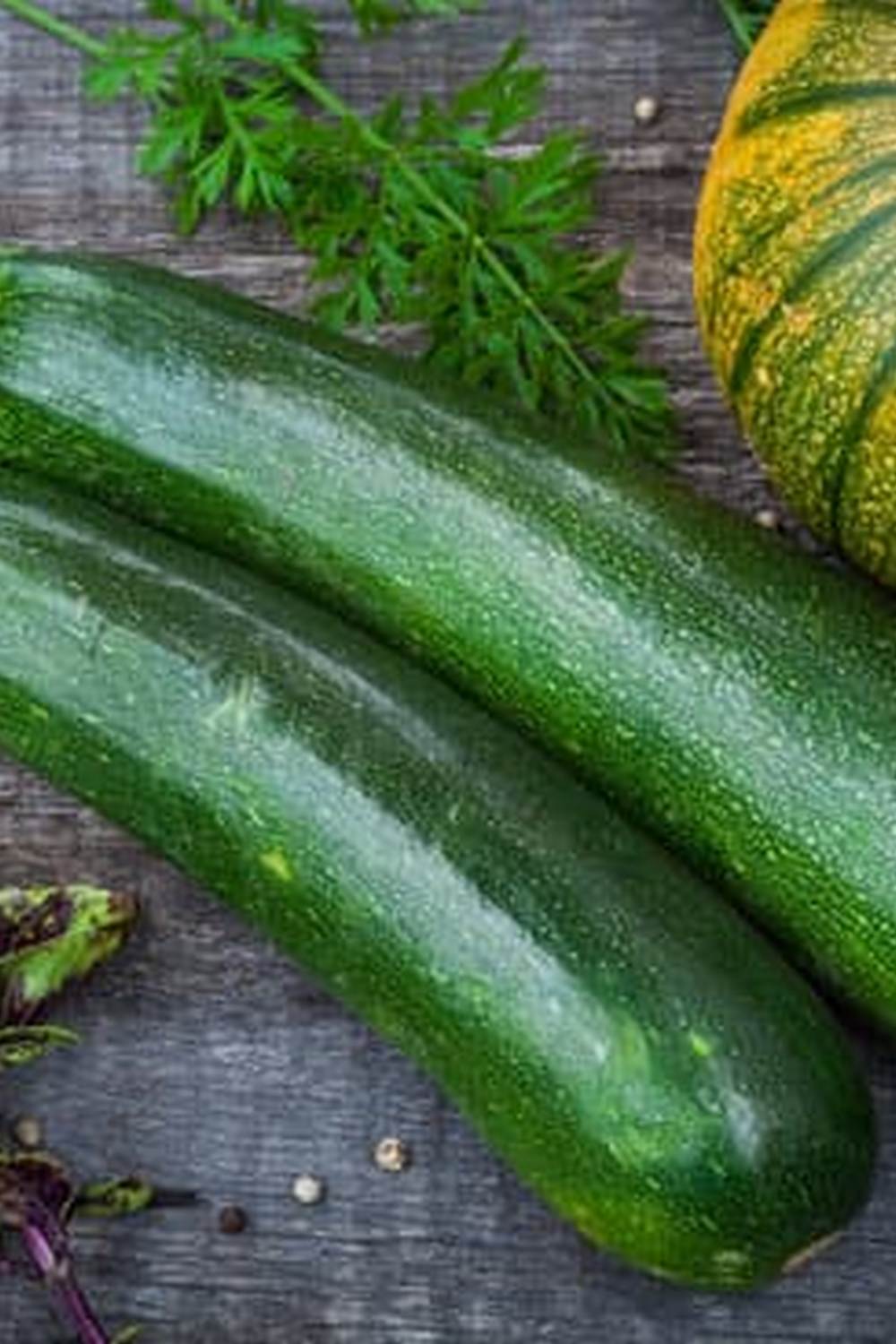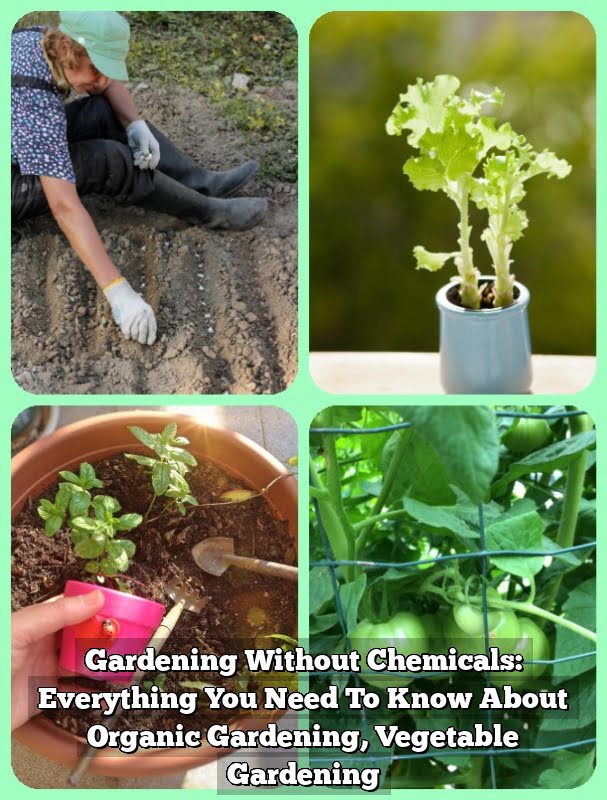New Hampshire vegetable gardening is a popular and rewarding pastime for many residents of the Granite State. With its unique climate and growing seasons, New Hampshire offers a range of opportunities for cultivating a variety of delicious vegetables right in your own backyard. Whether you are new to gardening or a seasoned pro, there are plenty of resources and communities available to help you get the most out of your vegetable garden.
New Hampshire’s climate and growing seasons play a crucial role in determining which vegetables thrive best in the state. Understanding these factors can make a significant difference in the success of your garden. In this article, we will explore the best vegetables to grow in New Hampshire, as well as soil preparation and maintenance, pest and disease management, tips for starting a vegetable garden, community resources, and harvesting and preserving your bounty.
Whether you are looking to cultivate a small container garden on your patio or establish a larger plot in your backyard, New Hampshire’s vegetable gardening scene has something for everyone. With the help of this guide, you can enjoy the satisfaction of growing your own fresh produce while embracing the joys of vegetable gardening in New Hampshire.
Climate and Growing Seasons in New Hampshire
New Hampshire has a diverse climate with cold winters and warm, humid summers, making it a unique environment for vegetable gardening. The state is located in USDA hardiness zones 3-6, meaning that gardeners need to be mindful of the specific growing seasons and temperature ranges when planning their vegetable gardens.
In New Hampshire, the average frost-free growing season typically ranges from 90 to 150 days, depending on the specific location within the state. Coastal regions generally have a longer growing season than inland areas. Understanding the local climate patterns and knowing the average first and last frost dates for your area is crucial for successful vegetable gardening in New Hampshire.
When planning a vegetable garden in New Hampshire, it’s important to choose vegetables that are well-suited to the state’s climate. Cold-hardy vegetables such as broccoli, cabbage, carrots, and lettuce thrive in the cool spring and fall seasons, while warm-season crops like tomatoes, peppers, cucumbers, and zucchini require the heat of summer to flourish.
Gardeners should also consider using season extenders such as row covers or hoop houses to maximize their growing season and protect their plants from unexpected frosts in spring and fall.
Planting dates are key for successful vegetable gardening in New Hampshire. It is important to start seeds or transplant seedlings at the appropriate times to ensure that they have enough time to mature before the first fall frost arrives. Keeping a garden journal or referring to planting calendars specific to New Hampshire can help gardeners stay organized and maximize their harvest throughout the varying growing seasons.
Best Vegetables to Grow in New Hampshire
New Hampshire is a great state for vegetable gardening, with its diverse climate and growing seasons. When planning your vegetable garden in New Hampshire, it’s important to choose the right vegetables that will thrive in this environment. Some of the best vegetables to grow in New Hampshire include tomatoes, potatoes, green beans, carrots, lettuce, and kale.
Tomatoes are a popular choice for New Hampshire vegetable gardens because they love the warm summers and thrive in well-drained soil. Potatoes are also a good option as they can be grown successfully in cooler climates and are low maintenance. Green beans are another favorite as they can be easily grown from seeds and produce a high yield. Carrots, lettuce, and kale are cool-season crops that do well in the spring and fall in New Hampshire.
When choosing the best vegetables for your New Hampshire garden, it’s important to consider the climate and growing seasons. While some vegetables may require more warmth and sunlight to thrive, others may do better in cooler temperatures. By selecting the right vegetables for your region, you can ensure a successful harvest from your New Hampshire vegetable garden.
| Vegetable | Best Season to Grow |
|---|---|
| Tomatoes | Spring/Summer |
| Potatoes | Spring/Fall |
| Green Beans | Spring/Summer |
| Carrots | Fall/Spring |
By carefully selecting the best vegetables for your New Hampshire garden, you can enjoy a bountiful harvest throughout the growing season. Additionally, local farms and nurseries often provide starter plants or seeds specifically suited to the New Hampshire climate and soil conditions. Consider reaching out to these resources for more information on which vegetables are best suited for thriving in a New Hampshire vegetable garden.
Soil Preparation and Maintenance
One of the most important aspects of successful vegetable gardening in New Hampshire is soil preparation and maintenance. The quality of the soil directly affects the health and productivity of your crops. Before planting, it’s essential to test your soil to determine its pH levels, nutrient content, and composition. You can obtain a soil testing kit from the University of New Hampshire Cooperative Extension or have a professional test it for you.
Once you have determined the state of your soil, you may need to amend it with organic matter such as compost, well-rotted manure, or peat moss to improve its texture and fertility. In addition to adding organic matter, consider incorporating minerals and nutrients specific to the needs of the vegetables you intend to grow. For example, if you plan on planting tomatoes or peppers, ensure that your soil has adequate amounts of potassium and phosphorus.
In terms of maintenance, regular weeding is crucial to prevent competition for nutrients among your vegetable plants. Mulching is also beneficial as it helps retain moisture in the soil while suppressing weed growth. Additionally, rotating your crops annually can help prevent nutrient depletion and minimize disease buildup in the soil. Following these practices will ensure that your New Hampshire vegetable garden thrives throughout the growing season.
| Aspect | Consideration |
|---|---|
| Soil Testing | Determine pH levels, nutrient content, and composition |
| Amendment | Add organic matter like compost or manure; incorporate specific nutrients for chosen vegetables |
| Maintenance | Regular weeding, mulching, crop rotation, |
Pest and Disease Management for New Hampshire Vegetable Gardens
Common Pests in New Hampshire Vegetable Gardens
New Hampshire vegetable gardening enthusiasts need to be aware of the common pests that can wreak havoc on their crops. Some of the most prevalent pests in the region include aphids, cutworms, cabbage worms, and squash bugs. These pests can cause damage to a wide variety of vegetables, leading to reduced yields and decreased plant health.
Preventative Measures
To minimize the impact of pests on your New Hampshire vegetable garden, it’s essential to implement preventative measures. One effective method is to practice crop rotation, which involves planting different types of vegetables in the same area each year. Additionally, using row covers and installing physical barriers can help protect plants from insect damage. Incorporating beneficial insects such as ladybugs and lacewings can also aid in controlling pest populations naturally.
Managing Diseases
In addition to pest management, New Hampshire vegetable gardeners should also be proactive in preventing and managing diseases that can affect their crops. Common diseases to watch out for include powdery mildew, late blight, and bacterial wilt. Proper plant spacing, adequate air circulation, and regular inspection for signs of disease are crucial in preventing outbreaks.
Utilizing disease-resistant varieties, employing proper watering techniques, and practicing good sanitation can further help mitigate the risk of crop diseases in your vegetable garden. Always promptly remove any plants showing signs of disease to prevent it from spreading to healthy plants.
By implementing these pest and disease management strategies, New Hampshire vegetable gardeners can increase their chances of a successful harvest year after year.
Tips for Starting a Vegetable Garden in New Hampshire
When it comes to starting a vegetable garden in New Hampshire, there are a few key tips to keep in mind to ensure a successful and bountiful harvest. First and foremost, it’s important to consider the climate and growing seasons in the region. New Hampshire experiences a relatively short growing season, typically from late May to early October, so it’s essential to select vegetables that are well-suited for this timeframe.
One of the best tips for starting a vegetable garden in New Hampshire is to choose vegetables that are cold-hardy and can withstand the region’s sometimes unpredictable weather. Some excellent options for New Hampshire vegetable gardening include leafy greens like spinach and kale, root vegetables like carrots and beets, as well as cold-tolerant crops such as peas and broccoli. By selecting these types of vegetables, gardeners can maximize their yield within the limited growing season.
In addition to choosing the right vegetables, soil preparation and maintenance are crucial for a successful vegetable garden in New Hampshire. The state’s soil tends to be acidic, so it’s important to test the pH levels and amend the soil accordingly.
Adding organic matter such as compost or aged manure can also improve soil structure and fertility, providing an optimal environment for healthy plant growth. Following these tips will help aspiring gardeners kickstart their own thriving New Hampshire vegetable gardens.
Community and Resources for New Hampshire Vegetable Gardeners
Local Gardening Clubs and Organizations
For those looking to connect with like-minded individuals or gain valuable knowledge and advice, joining a local gardening club or organization can be a great resource. In New Hampshire, there are several active groups such as the New Hampshire Master Gardener Association and the New Hampshire Federation of Garden Clubs. These organizations often host events, workshops, and plant sales, providing opportunities for networking and learning from experienced gardeners.
Farmers Markets and Seed Exchanges
Farmers markets are not only great places to purchase fresh produce but also to connect with local growers and learn about what grows well in the area. Many farmers markets in New Hampshire also host seed exchanges or plant sales, allowing vegetable gardeners to access unique varieties of plants for their gardens. Participating in seed exchanges can be an excellent way to obtain locally adapted seeds that are well-suited for the specific growing conditions of New Hampshire.
University Extension Programs
The University of New Hampshire Cooperative Extension offers a wealth of resources for vegetable gardeners, including fact sheets, workshops, and soil testing services. The extension program provides valuable information on best practices for New Hampshire vegetable gardening, as well as guidance on pest and disease management specific to the region. Taking advantage of these resources can help gardeners make informed decisions and improve their gardening skills.
Harvesting and Preserving Your New Hampshire Vegetable Garden’s Bounty
When it comes to harvesting and preserving the bounty of your New Hampshire vegetable garden, there are several important steps to keep in mind. First and foremost, it’s essential to harvest your vegetables at the peak of ripeness for the best flavor and nutritional value. This means regularly checking your garden for ripe produce that is ready to be picked.
Once you have harvested your vegetables, there are various methods for preserving them to enjoy throughout the year. One popular method is canning, which involves placing the vegetables in jars and processing them in a hot water bath or pressure canner. This is a great way to preserve your harvest for long-term storage and ensure that you have delicious homegrown vegetables available during the winter months.
Another popular preservation method is freezing, which is ideal for many types of vegetables including green beans, spinach, and peas. Before freezing your vegetables, it’s important to blanch them in boiling water for a few minutes and then immediately place them in ice water to stop the cooking process. Once they are cooled, you can pack them into freezer-safe bags or containers for long-term storage.
Preserving your New Hampshire vegetable garden’s bounty doesn’t stop at canning and freezing – pickling is another fantastic option. Whether you’re pickling cucumbers, beets, or peppers, this technique allows you to enjoy your garden’s harvest in a whole new way. Pickled vegetables make a tasty addition to salads and sandwiches while also providing a flavorful accompaniment to many meals.
In addition to these preservation methods, consider drying herbs from your vegetable garden or making homemade sauces and salsas with fresh tomatoes and peppers. With proper preservation techniques, you can savor the flavors of your New Hampshire vegetable garden all year round.
Conclusion
In conclusion, New Hampshire offers a unique and rewarding environment for vegetable gardening. The diverse climate and growing seasons provide ample opportunity to cultivate a wide variety of vegetables, from early spring through the fall. With proper soil preparation and maintenance, as well as effective pest and disease management, gardeners in New Hampshire can enjoy bountiful harvests of fresh, organic produce.
Starting a vegetable garden in New Hampshire may seem daunting at first, but with the right approach and resources, it can be an immensely satisfying and fulfilling endeavor. Local communities and resources offer valuable support and guidance for novice gardeners, as well as opportunities for sharing experiences and knowledge with fellow enthusiasts. Whether you are a seasoned gardener or just starting out, there is always something new to learn from the vibrant community of New Hampshire vegetable gardeners.
As you savor the fruits of your labor by harvesting and preserving the bounty of your New Hampshire vegetable garden, you will come to appreciate the joys of connecting with nature and enjoying the freshest, most flavorful produce possible. The sense of accomplishment derived from growing your own food cannot be understated.
It is a testament to the resilience of both plants and people alike. So roll up your sleeves, get those hands dirty, and experience the countless rewards that come with vegetable gardening in beautiful New Hampshire.

If you’re looking to get into vegetable gardening, or are just looking for some tips on how to make your current garden better, then you’ve come to the right place! My name is Ethel and I have been gardening for years. In this blog, I’m going to share with you some of my best tips on how to create a successful vegetable garden.





